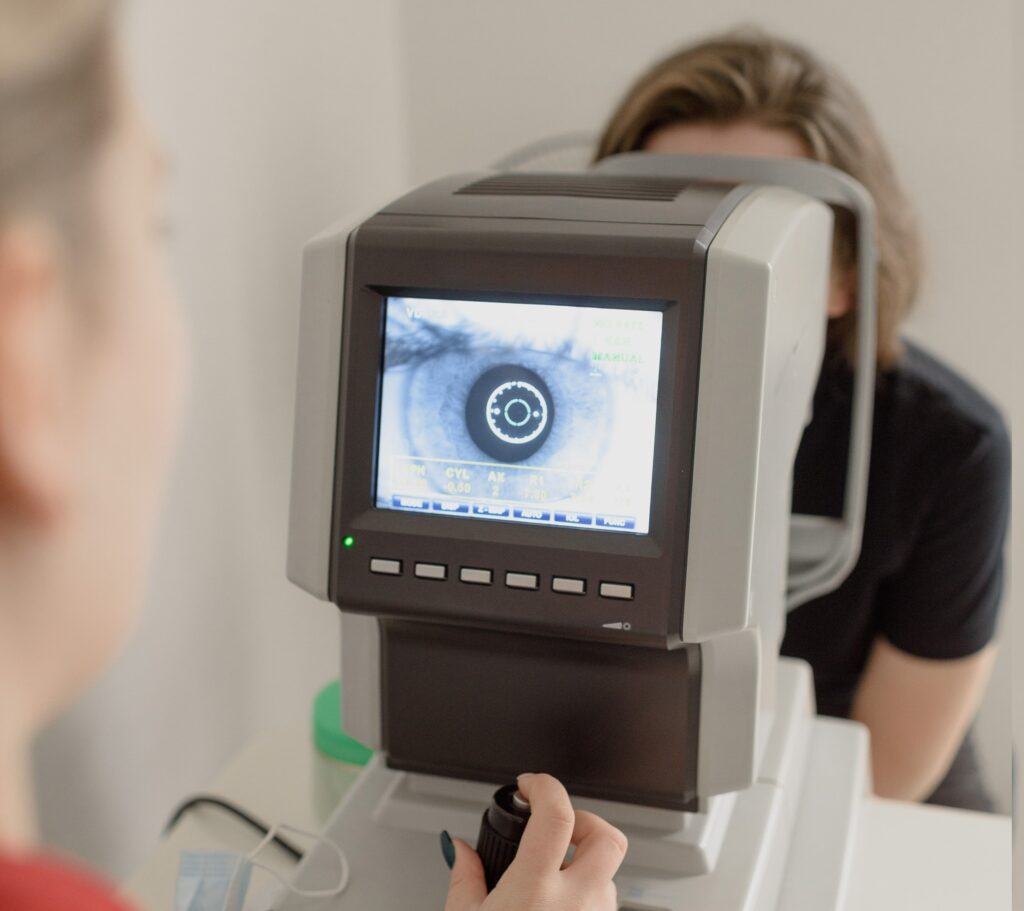According to a new study, undiagnosed visual impairments like cataracts or age-related macular degeneration (AMD) can lead to inaccurate scores on cognitive tests that rely on vision-dependent tasks in persons over 50.
Macular degeneration, which is linked to the ageing process, is the most prevalent cause of visual loss in the elderly. Although it does not cause total blindness, it severely limits one’s ability to read, drive, cook, and recognise faces. It has no impact on cognitive performance.
Age-related macular degeneration, tested.
The University of South Australia researchers selected 24 healthy volunteers for two cognitive tests that included vision-dependent reaction tasks and verbal fluency.
On cognitive measures including response time, subjects who wore goggles to imitate AMD fared much worse than those who did not. There was no statistically significant difference in verbal fluency scores when the goggles were used.
The study’s findings were published in the scientific journal Scientific Reports.

According to Anne Macnamara, a PhD candidate at the University of South Australia and the study’s lead author, the findings serve as a stark reminder that visual impairments, which affect over 200 million people over the age of 50 worldwide, have a negative impact on cognitive scores on visual ability tests. Macnamara specialises on vision impairment.
An inaccurate score on cognitive tests, according to Macnamara, can have major effects, creating changes in a person’s living, working, financial, and social situations without their awareness or agreement.
For example, if an inaccurate score led to a diagnosis of slight cognitive impairment, this could cause psychological issues like despair and fear.
People with AMD already experience a variety of difficulties as a result of their vision loss; an incorrect cognitive assessment just complicates matters.
Visual impairments are commonly disregarded in both academic and clinical settings, according to researchers at the University of South Australia, with impaired eyesight in as many as 50% of older persons being underestimated.
Because this number is projected to climb as the population ages, neurodegenerative researchers must consider eyesight when evaluating people’s cognitive abilities.
Mobile applications can now be used to simulate visual impairments on test materials during piloting, according to Macnamara.
In addition, researchers can incorporate basic and brief screening tasks before conducting cognitive tests to their individuals. At all times, verbal tasks should be incorporated in the evaluation process.
Story Source: Original release written by University of South Australia. Note: Content may be edited for style and length by Scible News.
Reference
Anne Macnamara, Victor R. Schinazi, Celia Chen, Scott Coussens, Tobias Loetscher. The effect of age-related macular degeneration on cognitive test performance. Scientific Reports, 2022; 12 (1) DOI: 10.1038/s41598-022-07924-8







